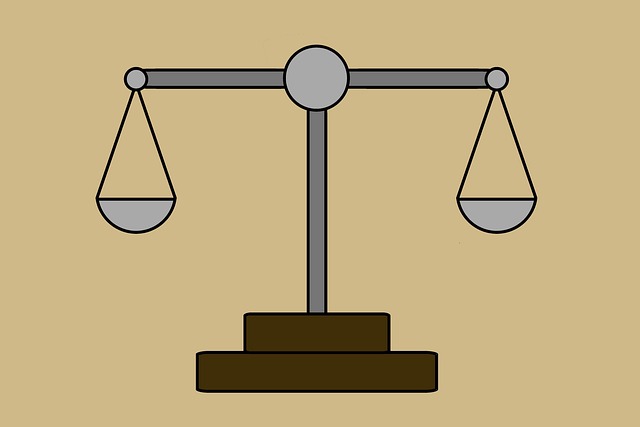Legal representation is indispensable during RF Regulatory Agency (RFRA) investigations, particularly in administrative hearings, where specialized lawyers navigate complex technical and regulatory aspects. These hearings, crucial for upholding RF standards, offer respondents a structured avenue to present defenses. Businesses in telecommunications, medical devices, and wireless technologies must engage legal counsel to understand their rights, gather documentation, and craft robust defenses. Skilled attorneys advocate for clients' interests, ensuring fair outcomes, even in high-stakes cases involving license revocations. Post-investigation appeals and potential penalties further emphasize the strategic importance of legal representation in RFRA proceedings.
In the dynamic landscape of wireless communication, RF (Radio Frequency) Regulatory Agency investigations play a pivotal role in ensuring compliance with stringent industry standards. This comprehensive guide delves into the intricacies of such inquiries, from understanding the regulatory framework to navigating complex legal proceedings. We explore key aspects, including the significance of legal representation during license applications and revocations, rights and expectations at administrative hearings, strategic document preparation, and post-investigation appeals processes. Empowered with this knowledge, businesses can effectively manage risks and secure their position in the dynamic RF spectrum.
- Understanding RF Regulatory Agency Investigations: A Comprehensive Overview
- The Role of Legal Representation in RF License Applications and Revocations
- Navigating Administrative Hearings: Rights and Expectations for Respondents
- Preparing for an RF Investigation: Document Gathering and Compliance Strategies
- Post-Investigation Proceedings: Appeals, Penalties, and Mitigating Factors
Understanding RF Regulatory Agency Investigations: A Comprehensive Overview

RF Regulatory Agency Investigations are a crucial process that ensures compliance with radio frequency (RF) standards across various sectors. These investigations are essential in safeguarding public safety and interest by preventing unauthorized or harmful RF emissions. When violations are suspected, regulatory agencies conduct thorough inquiries, often involving complex technical analysis and legal interpretations. Understanding this process is pivotal for businesses and individuals alike to navigate the potential consequences and ensure their rights are protected.
In many cases, these investigations lead to administrative hearings where parties may require Legal Representation in Administrative Hearings. This support is vital to navigate the regulatory framework effectively, especially given the technical nature of RF regulations. The outcome of such hearings can significantly impact businesses operating in sectors like telecommunications, medical devices, and wireless technologies. Furthermore, being prepared for potential jury trials related to white-collar and economic crimes is a strategic consideration for those facing RF regulatory charges, ensuring they are well-represented within the philanthropic and political communities that often influence regulatory policies.
The Role of Legal Representation in RF License Applications and Revocations

When facing RF (Radio Frequency) license applications or revocations with the RF Regulatory Agency, having skilled legal representation is paramount. Administrative hearings within this process can be complex and highly technical, often involving intricate regulations and standards. Legal professionals specialized in this domain guide clients through these proceedings, ensuring their rights are protected. They possess an in-depth understanding of the agency’s requirements and procedures, enabling them to navigate the legal landscape effectively.
A competent lawyer specializing in RF Regulatory Agency matters can offer valuable insights tailored to each unique case. They prepare robust defenses, present compelling arguments, and advocate for their clients’ interests. Across the country, many respective businesses have benefited from these strategic alliances, achieving winning challenging defense verdicts. This support is crucial when dealing with potential license revocations or complex application processes, ensuring fair outcomes in these high-stakes scenarios.
Navigating Administrative Hearings: Rights and Expectations for Respondents

Navigating Administrative Hearings involves understanding rights and expectations for respondents. These hearings play a pivotal role in RF Regulatory Agency investigations, providing a structured platform to present defenses and offer evidence. Respondents have the right to legal representation throughout the process, ensuring they can adequately defend their actions or products against allegations. Legal counsel specializing in regulatory law is particularly beneficial as they understand complex regulations and procedures unique to these hearings.
Across the country, philanthropic and political communities recognize the importance of fair and transparent investigations. Therefore, respondents should anticipate a thorough examination of their cases, where all relevant evidence is presented and considered. Understanding the expectations of the hearing process empowers respondents to actively participate, protect their interests, and ensure justice is served throughout all stages of the investigative and enforcement process.
Preparing for an RF Investigation: Document Gathering and Compliance Strategies

Preparing for an RF (Radio Frequency) Investigation involves a strategic approach to document gathering and compliance. Companies under scrutiny should immediately engage legal representation specializing in administrative hearings to ensure they navigate the complex regulatory landscape effectively. This step is crucial as it allows businesses to understand their rights, anticipate potential issues, and formulate robust defenses.
During the preparation phase, organizations must collect and organize relevant documentation that proves their adherence to RF standards and regulations. This includes engineering records, certification documents, product specifications, and any correspondence with regulatory bodies. By implementing these compliance strategies, companies can demonstrate their commitment to adhering to legal requirements, potentially achieving extraordinary results for his clients throughout all stages of the investigative and enforcement process.
Post-Investigation Proceedings: Appeals, Penalties, and Mitigating Factors

After an RF Regulatory Agency (RFRA) investigation concludes, various post-investigation proceedings can unfold. One common outcome is an appeal process where parties aggrieved by the agency’s decisions can seek higher authority to review and potentially overturn the initial determination. This appeals stage allows for legal representation in administrative hearings, which can significantly impact the case’s outcome. Skilled attorneys specializing in RFRA matters can navigate these complex hearings, advocating for their clients’ rights and interests.
Penalties may also be assessed during or following an investigation if violations are found. These penalties can vary widely based on the severity of the infractions and any mitigating factors present. For his clients, having robust legal representation is crucial, as it enables a thorough exploration of potential defenses and the presentation of compelling arguments to minimize or avoid adverse consequences. Past successes in winning challenging defense verdicts demonstrate the value of professional advocacy during RFRA investigations and subsequent proceedings.
RF Regulatory Agency investigations are pivotal moments for individuals and entities navigating the complex landscape of radio frequency (RF) licensing. By understanding the process, from document gathering to appeals, one can effectively prepare and advocate for their rights. The role of legal representation in administrative hearings is essential, providing expertise and strategic guidance to ensure fair outcomes. This comprehensive overview highlights key steps, rights, and strategies, empowering respondents to navigate these investigations with confidence and proficiency, especially when it comes to Legal Representation in Administrative Hearings.






